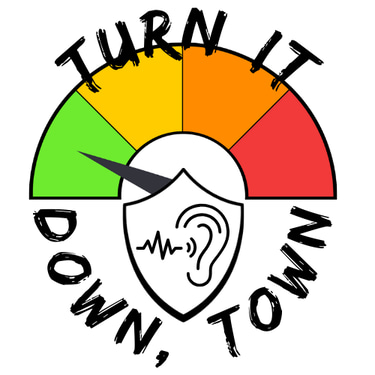Talking to Your Doctor About Sound Sensitivity
Navigating healthcare with sound sensitivity can be challenging—but your needs are valid, and your voice matters. This post offers practical tips and empowering language to help you talk to your doctor about sound-related discomfort, advocate for accommodations, and receive care that respects your sensory experience. Whether you're newly exploring sound sensitivity or supporting someone who is, this guide is here to help.
10/15/20252 min read


For many sound-sensitive individuals, everyday environments can feel overwhelming—painful even. Yet when it comes to medical care, sound sensitivity is often misunderstood, overlooked, or dismissed entirely. If you’ve ever struggled to explain your experience to a healthcare provider, you’re not alone.
This post is here to help you prepare for that conversation with clarity, confidence, and compassion—for yourself and for others navigating similar challenges.
Why It Matters
Sound sensitivity isn’t just a personal preference—it can affect your physical comfort, emotional well-being, and ability to access care. Whether you're dealing with hyperacusis, misophonia, sensory processing differences, or simply find loud spaces distressing, your doctor should know. Sharing this information can lead to better accommodations, more thoughtful referrals, and a deeper understanding of your overall health.
What to Say
Start with a simple, direct statement:
“I experience sound sensitivity, and loud environments can cause me pain, anxiety, or sensory overload.”
You can also describe specific situations:
“I avoid crowded waiting rooms because the noise is overwhelming.”
“I’ve left appointments early due to loud equipment or background music.”
“I need quiet spaces to focus and feel safe.”
If you have a diagnosis or past documentation, bring it. If not, your lived experience is still valid.
Tips for a Productive Conversation
Write down your symptoms beforehand so you don’t forget key points.
Use examples to help your doctor understand how sound affects your daily life.
Ask for accommodations: quieter exam rooms, reduced background noise, or scheduling during less busy hours.
Bring a support person if you feel more comfortable advocating with someone by your side.
What You Deserve
You deserve to be heard. You deserve care that respects your sensory needs. And you deserve a provider who listens without judgment. If your doctor isn’t responsive, it’s okay to seek another opinion or bring up the issue again.
Sound sensitivity is real. It’s valid. And it’s worth talking about.
Disclaimer: Turn it Down, Town is a community-led initiative. We are not medical professionals, and the content shared here reflects our personal experiences, research, and opinions. It is intended to raise awareness and spark conversation—not to provide medical advice. If you have health-related concerns, please consult a qualified professional.
Turn it Down, Town
Promoting sound-conscious public spaces for all.
Subscribe!
No noise, just news once a quarter! Get on the list!
© 2025. All rights reserved.
Site Designed by: Budde Designs
